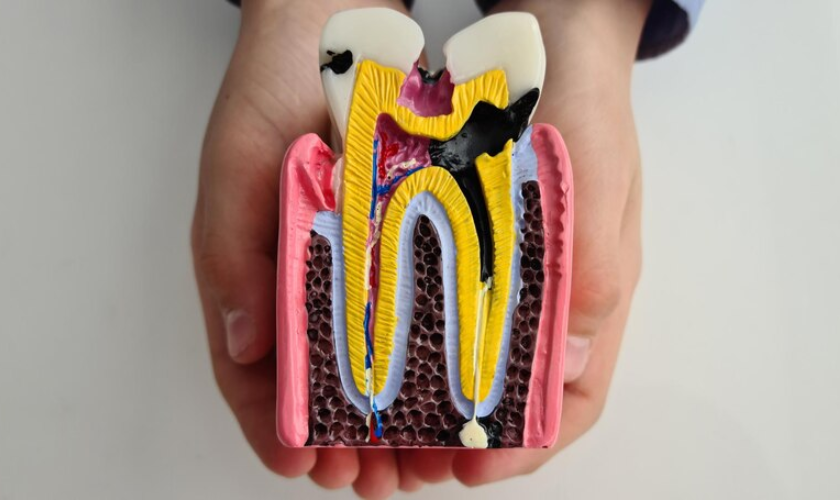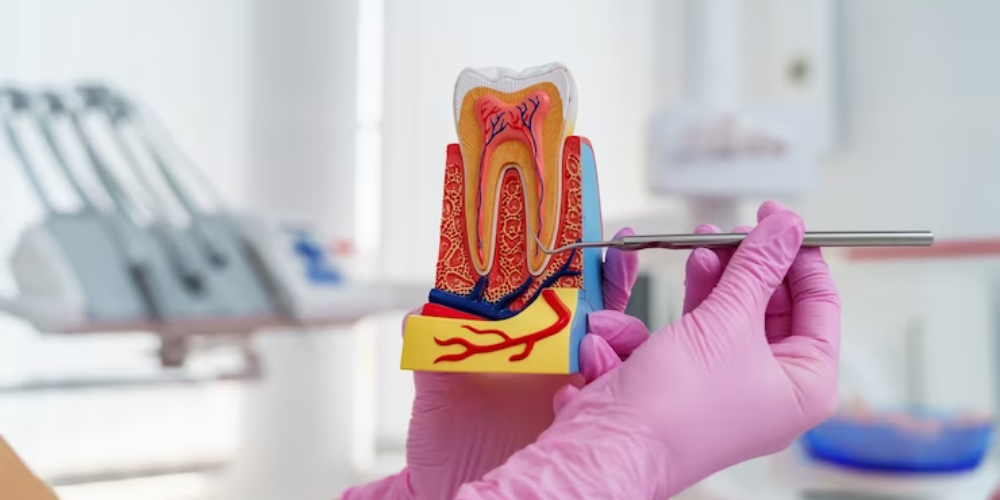Are you experiencing pain or discomfort after a root canal treatment? It’s possible that your root canal has become infected, and it’s important to address this issue promptly. In this blog post, we will explore the causes of infected root canals, the signs to look out for, how an infection is diagnosed, and most importantly, what steps you can take to treat and prevent further complications. So if you’re in Pasadena, CA and need guidance on dealing with an infected root canal, keep reading!
Causes of Infected Root Canals
When it comes to root canals, infections are no joke. They can cause severe pain and discomfort, not to mention potential damage to your teeth and overall oral health. So, what exactly causes a root canal to become infected?
One of the primary causes is untreated tooth decay. When cavities are left unaddressed, they can penetrate deep into the tooth’s structure and eventually reach the pulp chamber where the nerves and blood vessels reside. This opens up an avenue for bacteria to invade and cause infection.
Another common cause is dental trauma or injury that damages the tooth’s protective layers such as cracks or fractures. These openings provide a gateway for bacteria to enter and infect the pulp.
In some cases, a failed previous root canal treatment can also lead to infection. If all diseased tissue isn’t completely removed during the initial procedure or if there was inadequate sealing of the treated tooth afterward, bacteria may persist and result in reinfection.
Poor oral hygiene practices play a significant role as well. Inadequate brushing, flossing, or neglecting regular dental check-ups can allow harmful bacteria to thrive in your mouth and eventually lead to an infected root canal.
It’s worth noting that certain medical conditions like diabetes weaken our immune system’s ability to fight off infections effectively. Therefore, individuals with compromised immune systems may be more susceptible to developing infected root canals.
Signs of Infection
Experiencing pain or discomfort in your tooth can be a sign that something isn’t quite right. When it comes to root canals, an infection is one possible cause for this discomfort. But how do you know if your root canal is infected? Here are some signs to watch out for:
1. Persistent pain: If you have undergone a root canal procedure and continue to experience persistent pain in the affected tooth, it could indicate an infection. This pain may range from mild to severe and can worsen with pressure or chewing.
2. Swelling and tenderness: An infected root canal may lead to swelling around the affected tooth or even in the surrounding gums. The area might also feel tender when touched.
3. Sensitivity to temperature changes: If consuming hot or cold foods and beverages triggers sharp, lingering sensitivity in the treated tooth, it could signal an infection.
4. Bad breath or taste: A foul odor coming from your mouth despite good oral hygiene practices could indicate an infected root canal. Additionally, you might notice a strange taste accompanying the bad breath.
5. Discoloration or darkening of the tooth: An infected root canal can cause discoloration of the affected tooth over time, turning it grayish-black compared to neighboring teeth.
If you observe any of these signs after undergoing a root canal procedure, it’s essential not to ignore them as they may indicate an infection that requires prompt attention from a dentist in Pasadena, CA!
Diagnosing An Infected Root Canal
Diagnosing an infected root canal is crucial for timely treatment and preventing further complications. While only a dentist can provide a definitive diagnosis, there are common signs that may indicate an infection.
One of the most noticeable symptoms of an infected root canal is persistent pain in the affected tooth. This pain may be sharp or throbbing and can worsen when you bite down or apply pressure to the area. Additionally, you may experience sensitivity to hot or cold foods and beverages.
Swelling around the affected tooth or gums is another telltale sign of infection. You might notice redness, tenderness, or even a small bump resembling a pimple near the site of the infected root canal.
In some cases, an abscess may form at the tip of the tooth’s root. This can lead to localized swelling and difficulty in fully opening your mouth due to discomfort.
During a dental examination, your dentist will carefully examine your teeth and gums while also reviewing any symptoms you have been experiencing. X-rays are often used to confirm whether there is an infection present within the root canal system.
Treating An Infected Root Canal
When it comes to treating an infected root canal, prompt action is essential. Ignoring the infection can lead to further complications and even tooth loss. So, what are the options for treating an infected root canal?
The first step in treatment is to remove the infection from the root canal system. This involves a procedure called a root canal therapy or endodontic treatment. During this procedure, your dentist will carefully remove the infected pulp tissue and clean out any bacteria or debris.
Once the root canal is cleaned, it will be sealed off with a filling material to prevent reinfection. In some cases, a dental crown may be placed on top of the tooth to provide additional protection and strength.
After completing the treatment, your dentist will closely monitor your progress during follow-up appointments. It’s important to attend these visits as they allow your dentist to ensure that the infection has been completely eradicated and that healing is progressing well.
In addition to professional treatment, maintaining good oral hygiene practices at home is crucial for preventing future infections. This includes brushing twice a day, flossing daily, and using mouthwash regularly.
Remember that every case of an infected root canal is unique, so it’s important to consult with a qualified dentist who can evaluate your individual situation and recommend appropriate treatment options tailored specifically for you. Don’t delay seeking help if you suspect you have an infected root canal – early intervention can save your tooth!
Prevention of Infected Root Canals
Prevention is always better than cure, and this holds true for infected root canals as well. By taking a few simple steps, you can significantly reduce the risk of developing an infection in your root canal.
Maintaining good oral hygiene is vital. This means brushing your teeth at least twice a day and flossing daily to remove food particles and plaque that can harbor harmful bacteria. Regular visits to your dentist in Pasadena, CA for professional cleanings are also essential.
Protecting your teeth from trauma is important. Avoid biting down on hard objects like ice or using your teeth as tools to open packages. If you participate in contact sports, wearing a mouthguard can help prevent injuries that could damage the tooth’s structure.
Another preventive measure is addressing dental issues promptly. Prompt treatment of cavities or cracks in the tooth can prevent them from progressing into more severe infections that may require a root canal.
It’s crucial to avoid habits such as smoking or excessive alcohol consumption which can weaken the immune system and make it harder for the body to fight off infections.
By following these preventative measures and maintaining regular dental check-ups with your trusted dentist in Pasadena, CA, you can minimize the risk of developing an infected root canal and ensure optimal oral health.
In this article, we have discussed the causes, signs, diagnosis, treatment, and prevention of infected root canals. It is important to remember that an infected root canal should not be taken lightly as it can lead to serious complications if left untreated.
If you suspect that your root canal may be infected, it is crucial to visit a dentist in Pasadena, CA as soon as possible. They will thoroughly examine your teeth and gums and determine the best course of action for your specific situation.
Remember that prevention is always better than cure when it comes to oral health. Practicing good oral hygiene habits such as brushing twice a day, flossing regularly, and visiting your dentist for regular check-ups can go a long way in preventing infections.
Dealing with an infected root canal requires prompt attention and professional care. By understanding the causes, recognizing the signs early on, seeking proper diagnosis and treatment from a skilled dentist in Pasadena CA, and adopting preventive measures, you can ensure optimal oral health for years to come.
So don’t hesitate! If you suspect an infection in your root canal or are experiencing any discomfort or pain in that area, reaching out to a trusted dental professional is key.




